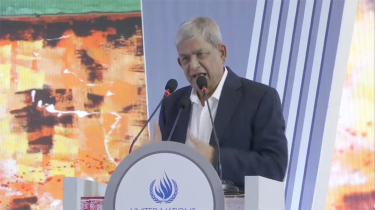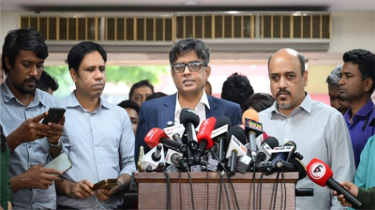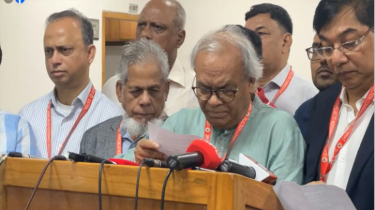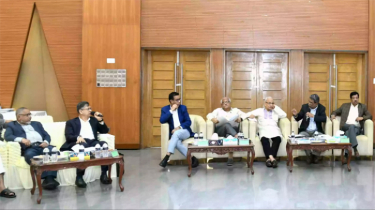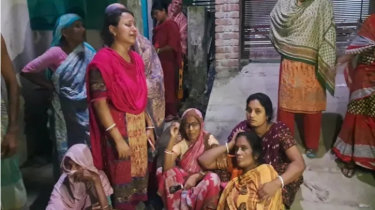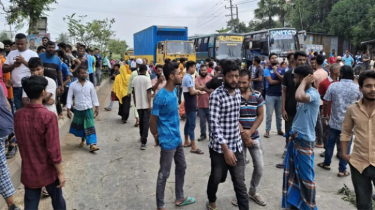What is Pahela Baishakh if not a dawn of hope?
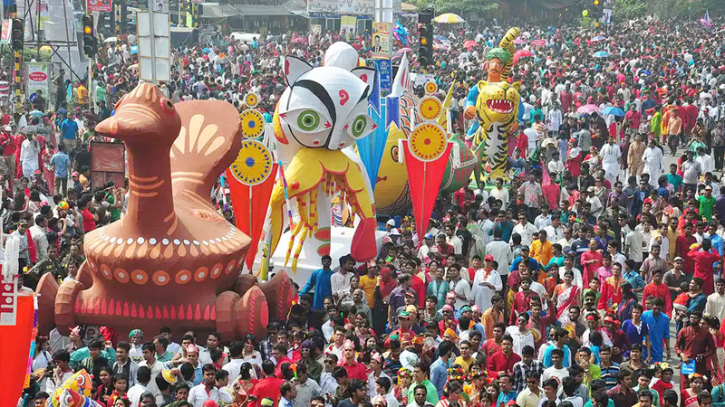
Published : 19:59, 14 April 2025
As the crimson sun rises on the first day of Baishakh, its golden rays spill over a land alive with colour, music, and tradition. The streets echo with the chorus of "Esho hey Boishakh, esho esho," beckoning the new year.
This Pahela Baishakh, like countless others before, is a celebration of life and heritage, of resilience and unity, of defiance and hope.
But this year, it is different.
Because this year, the celebration arrives not just with songs and processions—but with a resolute hope for change.
Bangladesh stands at a crossroads, after decades of political stagnation.
The fall of Sheikh Hasina's undemocratic, tyrannical, and iron-handed regime—brought down by a mass uprising of students and ordinary people—marks a turning point that could reshape the trajectory of the country.
During her tenure, people were, by and large, deprived of their voting rights. The parliament was weakened and failed to hold the executive branch accountable.
The rule of law became a distant dream; media faced constant restrictions; freedom of speech was curtailed; dissenting voices were gagged.
Meanwhile, businessmen increasingly dominated politics and parliament. The criminalisation of politics escalated, with politicians amassing fortunes through corruption and siphoning billions of dollars in collusion with opportunist businessmen.
Under Awami League rule, the country transformed from crony capitalism into kleptocracy.
Since Hasina's ouster, Bangladesh is being run by an interim government helmed by Nobel laureate Professor Muhammad Yunus, globally acclaimed for as the father of social business, who leads a nation teetering between rebirth and regression.
His leadership has ushered in hope among the people, who now believe they may finally be able to build a truly democratic nation. This government has promised to restore democratic institutions and establish a system of governance rooted in accountability, transparency, and public welfare.
The symbolic power of Pahela Baishakh—rooted in renewal and the cleansing of the old—feels especially potent this year.
It's no longer just about sweeping away the dust of the past calendar; it's about washing away the deep-rooted rot of cronyism, corruption, and impunity that has long defined Bangladeshi politics.
For too long, democracy within the political parties has been a theatre with a predictable script. Dynastic structures plagued political parties although party constitutions spoke of internal elections and representative nominations. In reality, leaders became the supreme authority—ruling through loyalty, fear, and an entrenched culture of patronage.
Can we really break free of this cycle? People dare to dream of change; they refuse to give up on hope.
As we usher in a new year with new resolutions to grow and to evolve, we must also collectively resolve to rebuild our institutions and bring about real change within the political system. But of course, there is fear—that the old patterns may return under new guises. That promises of reform may dissolve into rhetoric, as they have, so many times before.
Crossing the Rubicon, as they say, is never easy. The future remains uncertain, and the forces of regression still lurk in the shadows.
But for now, as Bangladesh steps into the new year, she does so with her head high and her eyes fixed firmly on the horizon.
After all, what is Pahela Baishakh, if not an unwavering faith that after every long, dark night, comes a new dawn?
এএম





